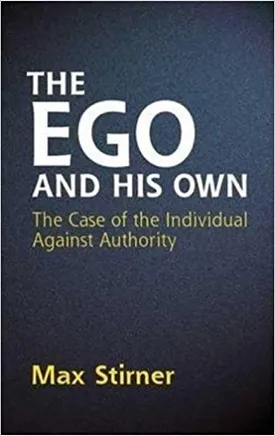Max Stirner
Max Stirner, born Johann Kaspar Schmidt in Bayreuth, Germany in 1806, is one of the most prominent advocates of the philosophy of individualism. As a young man, he was exposed to the ideas of the French Revolution, the Enlightenment, and early socialism. Stirner was heavily influenced by German philosopher Heinrich Heine and began reading Hegel with Heine and other thinkers in the “Young Hegelians” group. He wrote his most famous work, The Ego and Its Own, at the age of 23 and published it in 1845.
In The Ego and Its Own, Stirner presents a dualistic philosophy of individualism which he opposed to existing ideologies at the time. Stirner suggested that instead of following defined ideals of religion, state, or society, individuals should strive to create their own morality and obey no one but themselves. Stirner argued that individuals had the right to pursue their own desires without deferring to any external authority. This philosophy was an alternative to collectivism, which was popular in the 19th century, and contradicted the principles of socialism, positivism, and determinism.
Stirner’s individualistic freedom implies that individuals have their own purposes in life and their own value systems. This means that, unlike collectivism, one set of values cannot be imposed on every person. Stirner argued that individuals should explore their own self-interest and decide for themselves what is best for them. This does not necessarily have to be in conflict with the interests of others, since it is still possible for individuals to work together to achieve shared goals.
Stirner’s ideas were mainly met with criticism during his lifetime. Critics accused him of being a nihilist, and they referred to him as the “stupidity of the century”. Despite this negative reception, Stirner’s books and lectures had a profound influence on thinkers like Friedrich Nietzsche, who shared many of the ideas in The Ego and Its Own.
Stirner’s philosophy can be seen as a precursor to existentialism, as he believed that individuals should make their own decisions and take responsibility for their actions. He also championed freedom from authority and criticism of existing social structures. His ideas have been influential in anarchist and libertarian philosophies, as well as in psychological studies such as those of Erich Fromm and Rollo May.
Though Stirner’s work has since been rediscovered and gaining wider acceptance, his main works remain largely neglected today. He remains an important figure in philosophy and his impact on individualist and social thought since the 19th century cannot be overstated. Stirner’s legacy lives on in the works of philosophers like Nietzsche and his works remain essential reading for those interested in understanding the roots of individualism.

